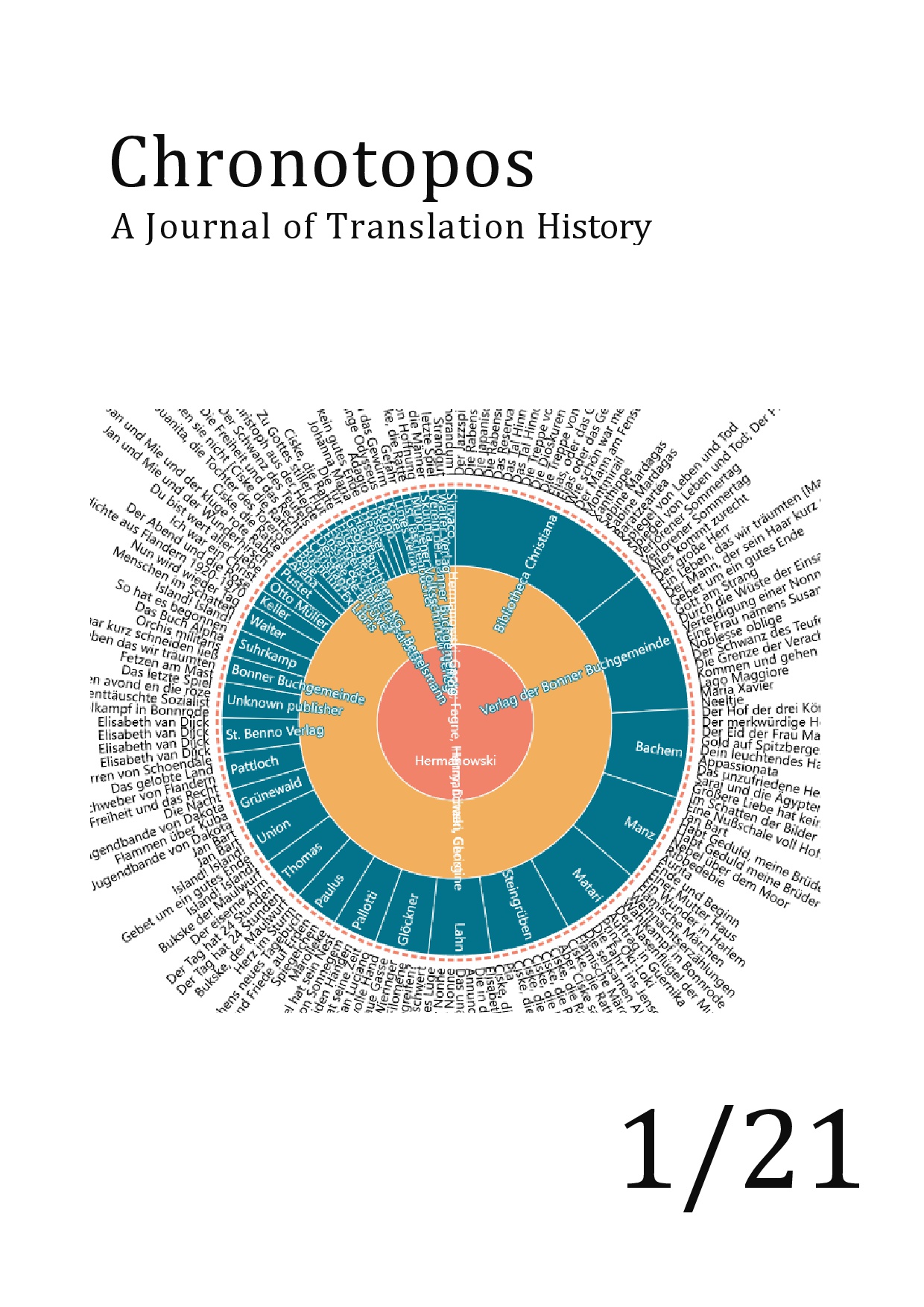Überleben übersetzen: перевод и литература Холокоста
DOI:
https://doi.org/10.25365/cts-2021-3-1-7Keywords:
Перевод литературы Холокоста, прагматическая эквивалентность, реципиент, опущение, Х. Э. Верольме, М. Пресслер, pragmatic equivalence, recipient, omission, translation of holocaust literature, M. Pressler, H. E. VerlomeAbstract
Multilingual memoirs and autobiographical texts by Holocaust survivors are of great importance for research in a wide range of fields of knowledge. Their translation in general, as well as their translation into German in particular, is of interest from the perspective of translatology. The study focuses on the English-language text The Children's House of Belsen by H. E. Verolme and its German translation Wir Kinder von Bergen-Belsen by M. Pressler. The analysis revealed the use of such translation transformations as omissions, among which we distinguish omissions by volume (complete and partial) and by degree of justification (justified and unsubstantiated). In the German translation, the names of concentration camps, toponyms, ethnonyms, the name of the Red Cross organization and several swear words are omitted. As a result of this transformation, the text is pragmatically adapted for the German-speaking recipient and is more neutral in terms of conveying the original information in the contexts considered. Omitting is a complex transformation and is accompanied by the replacement of information, generalisation, stylistic neutralisation and the removal of national-cultural specificity. The reasons for the use of omissions include the need to achieve pragmatic equivalence and to adapt the text for the German-speaking reader, who is 'tired' of the Holocaust.
Разноязычные мемуарно-автобиографические тексты, авторы которых пережили Холокост, имеют чрезвычайную важность для проведения исследований в самых различных областях знания. С точки зрения транслатологии интерес вызывает их перевод в целом, а также перевод на немецкий язык в частности. Материалом исследования является англоязычный текст Х. Э. Верольме The Children’s House of Belsen и его перевод на немецкий язык Wir Kinder von Bergen-Belsen, выполненный М. Пресслер. Проведенный анализ позволил выявить случаи использования такого переводческого преобразования как опущение информации, среди которого нами выделено отдельно опущение по объему (полное и частичное опущение) и по степени обоснованности (обоснованное и необоснованное). В тексте немецкоязычного перевода оказываются опущенными названия концентрационных лагерей, топонимы, этнонимы, название организации «Красный Крест», инвективная лексика и др. В результате использования данного преобразования текст оказывается прагматически адаптированным для немецкоязычного реципиента и в рассмотренных контекстах является более нейтральным в плане передачи исходной информации. Опущение представляет собой комплексное преобразование и сопровождается заменой информации, генерализацией, стилистической нейтрализацией и элиминацией национально-культурной специфики. К причинам использования опущения отнесем необходимость достижения прагматической эквивалентности и адаптации текста для немецкоязычного читателя, который «устал» от Холокоста.
Downloads
Published
How to Cite
Issue
Section
License
Copyright (c) 2022 Polina Banman

This work is licensed under a Creative Commons Attribution-NonCommercial 4.0 International License.

licence: CC BY-NC 4.0


